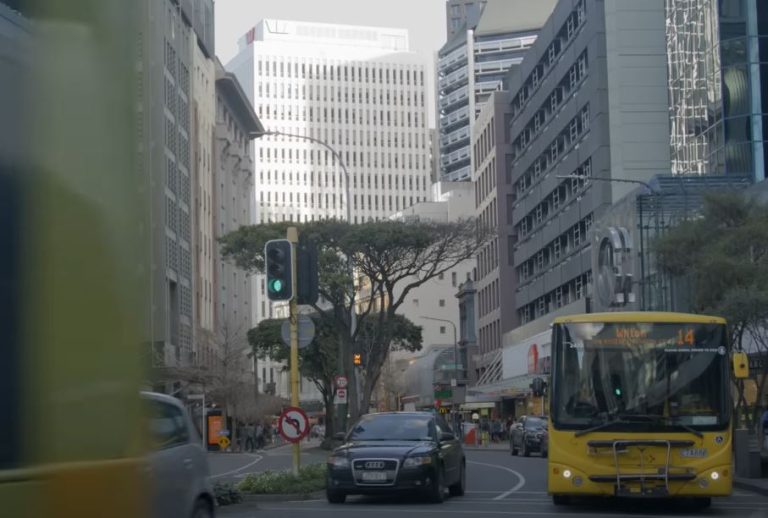More than just a political capital, Wellington, the beating center of New Zealand, is a city full of innovation, culture, and stunning natural beauty. One of the most fascinating capitals in the world, this small but vibrant city is tucked away at the southernmost point of the North Island and combines modern energy with historic charm. Wellington has a distinct personality that makes it stand out from other cities in the nation, from its famous waterfront to its thriving arts scene.
Wellington has long been regarded as the political and cultural center of New Zealand, despite being smaller than Auckland. The city, which houses the nation’s government, is a creative and economic hub that also plays a significant role in determining national policies. What, though, is so unique about Wellington? Let’s examine the city that many refer to as New Zealand’s soul in more detail.
Why the Capital Was Moved to Wellington
Considering Auckland’s greater population and commercial clout, many people question why it isn’t the capital of New Zealand. Both political and strategic thinking hold the key to the solution. Wellington’s more central location made it easier to govern both the North and South Islands, so the government decided to move the capital from Auckland to Wellington in 1865. Wellington was also the perfect choice for a developing country because of its deep-water port and advantages in natural defense.
Since then, Wellington has developed into the administrative center of the nation, housing the Supreme Court, Parliament, and many other government offices. Wellington continues to be the political hub of the nation, even though Auckland is the hub of most economic activity.
Key Facts About Wellington
| Category | Details |
|---|---|
| Official Name | Wellington |
| Country | New Zealand |
| Founded | 1839 |
| Became Capital | 1865 |
| Population | ~215,000 (City) / ~425,000 (Metro) |
| Region | Wellington Region |
| Time Zone | NZST (UTC+12) |
| Climate | Oceanic, Windy |
| Nickname | Windy Wellington |
| Famous For | Government, Arts, Film Industry, Coffee Culture |
A City Made for Discovery
Wellington’s small size makes it easy for both locals and tourists to get around on foot, which is one of its best features. The city’s lively waterfront, busy Cuba Street, and verdant hills all contribute to its lively yet cozy atmosphere. With pedestrian-friendly streets, picturesque lookouts, and a wealth of undiscovered treasures, Wellington’s urban planning promotes exploration.
The city offers an endless array of cultural experiences, from the historic Te Papa Museum showcasing the nation’s rich heritage to the Wellington Cable Car providing panoramic views. Additionally, Wellington’s natural beauty—framed by the Cook Strait and undulating green hills—adds to its undeniable charm despite its reputation for strong winds.
The Creative and Cultural Capital
Wellington is frequently described as New Zealand’s creative center. With some of the most important cultural events in the nation, such as the World of Wearable Art (WOW) exhibition and the New Zealand International Film Festival, the city boasts a flourishing arts scene. Additionally, it is home to Weta Workshop, the renowned film production company that brought Wellington to the attention of the world of entertainment with films like Avatar and The Lord of the Rings.
Beyond the arts and film, Wellington is known for its legendary coffee culture. With a strong appreciation for craft coffee and artisanal brewing, the city has more cafés per capita than New York. Wellington continues to draw both creatives and entrepreneurs due to its vibrant nightlife, inventive food, and expanding tech industry.
The Center of Politics and Economics
Wellington serves as the seat of government and is the site of important decisions that influence New Zealand. The nation’s iconic Parliament building, the Beehive, represents the city’s pivotal role in governance. Wellington is also home to numerous international embassies, policy think tanks, and corporate headquarters, making it a crucial hub for both domestic and foreign affairs.
In addition to politics, Wellington’s economy is gradually becoming more diverse. With thriving startups and innovation hubs, the city has emerged as a significant player in the technology sector. Its flourishing tourism and hospitality sectors, which attract tourists from all over the world who are looking for both natural beauty and cultural experiences, also make a substantial contribution to the local economy.
Sustainability and Nature: An Involved City
Wellington is one of the few capitals that successfully blends nature and urban life. The city is home to Zealandia, a ground-breaking eco-sanctuary devoted to rehabilitating native wildlife, and places a high priority on sustainability. Hiking trails, walks along the coast, and bike routes are all part of Wellingtonians’ daily lives, demonstrating their love of the outdoors.
By putting clean energy projects into action and giving green urban development top priority, the city has made significant strides toward environmental sustainability. Wellington has gained international recognition as one of the most livable cities thanks to its progressive approach, which blends contemporary innovation with environmental awareness.
What Will Happen in Wellington Next?
Wellington is set to undergo more change in the future. The city is making significant investments in infrastructure projects, such as smart city technology, climate adaptation plans, and upgrades to public transportation. By reducing traffic and improving livability, these projects hope to keep Wellington at the forefront of sustainable urban development.
Wellington’s function as a global center of diplomacy and commerce is also anticipated to grow as New Zealand fortifies its position in the world. The capital is ideally situated to prosper in the ensuing decades thanks to its robust economy, strong cultural identity, and dedication to sustainability.


